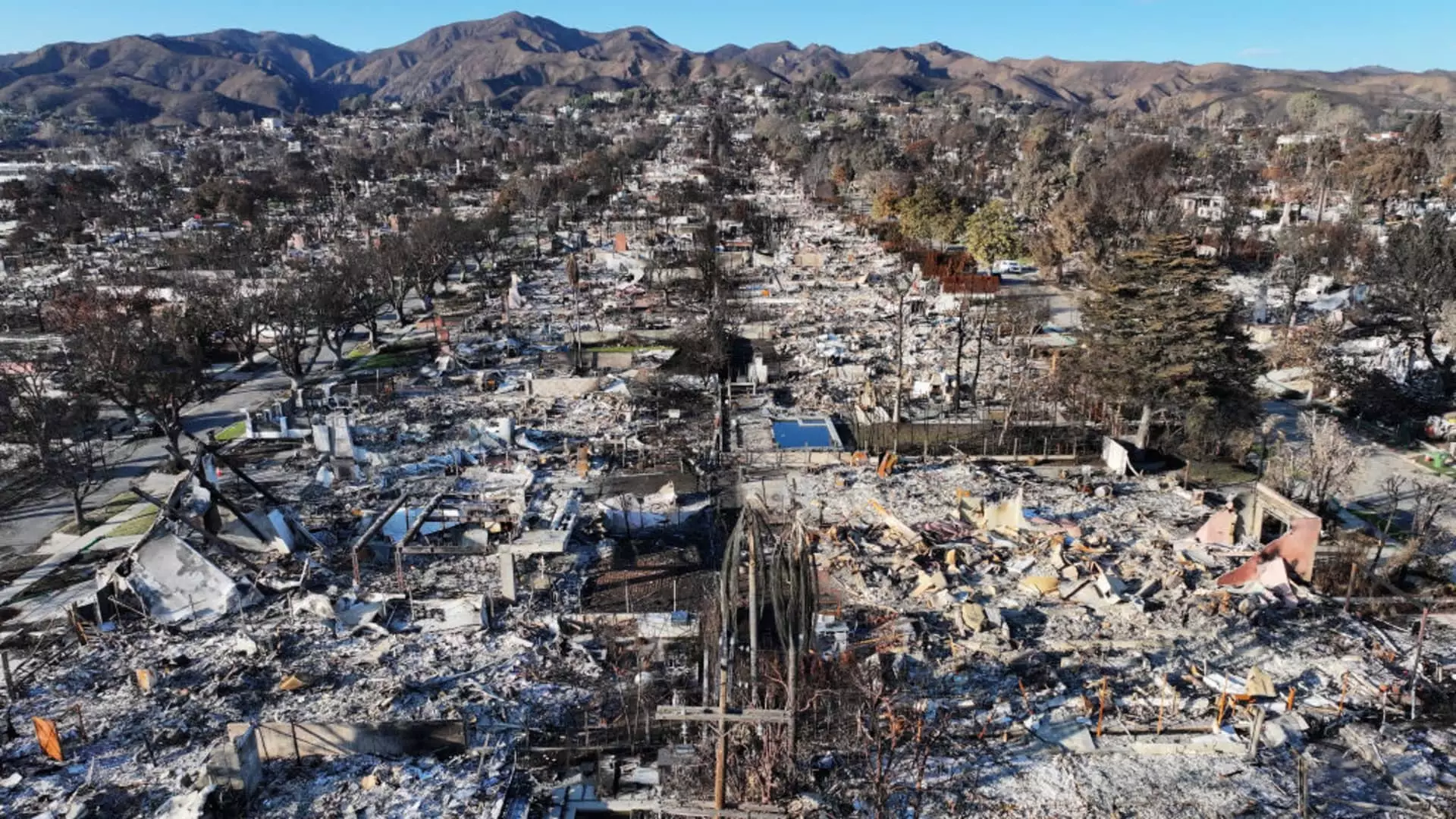The recent wildfires that wreaked havoc in Los Angeles have illuminated a stark reality—climate-related phenomena are not merely environmental concerns but severe financial burdens that shake even the biggest players in the insurance sector. Germany’s leading reinsurers, Munich Re and Hannover Re, reported a staggering $1.9 billion in profit losses attributed to these wildfires, underscoring the precarious balance between climate change and fiscal stability. For a sector inherently designed to absorb risk, the scale of these losses speaks volumes about the present dangers posed by an increasingly volatile climate.
In an era where weather patterns are becoming erratic, reinsurers face crippling challenges as they grapple with the financial aftermath of catastrophic events. Munich Re, the kingpin of reinsurance, disclosed that the claims linked to the wildfires totaled around 1.1 billion euros. The company’s properties in the property-casualty segment sustained the bulk of the hits, with claims expense more than doubling. It’s a staggering reminder: the ramifications of climate change are reverberating through the financial system, creating a feedback loop where ecological crises lead to economic ruin.
Profit Nostalgia in a Post-Disaster Market
Despite wrestling with these significant impacts, Munich Re has not completely succumbed to despair. The company’s CFO, Christoph Jurecka, presented a narrative steeped in optimism, claiming that their earnings exhibited resilience aided by ‘prudent management.’ However, it’s hard not to question whether such optimism is a coping mechanism in the face of losses that annihilated nearly 72% of their property-casualty net profits. Amidst a backdrop of displacement and destruction, the idea of resilience almost feels out of touch.
Furthermore, it’s important to scrutinize what ‘prudent management’ really entails. As a liberal observer, I can’t help but feel a sense of dissonance when major corporations highlight financial prudence while the environment continues to degrade. These companies not only insure against calamity but also benefit from burgeoning practices that perpetuate ecological harm—real estate developments in fire-prone areas, for example. A balance needs to be struck, but it appears profit often outweighs responsibility in corporate decision-making.
Stock Market Impact: A Cautionary Tale
The immediate response from the stock market reflects a larger concern: the risk associated with climate change is no longer a distant fear; it is present and pressing. Following the announcement of these sobering financial outcomes, shares of Munich Re and Hannover Re fell by approximately 4%, positioning them as the weakest performers on the European Stoxx 600 index. This financial nosedive reflects investor trepidation regarding long-term sustainability in the face of continuously escalating climate threats.
Analysts seem divided on the potential paths for both reinsurers. While some maintain a cautious optimism, citing solid investment performance at Hannover Re, the overarching sentiment leans toward anxiety and skepticism. How can companies operating within this sector continue to depict an image of stability when the climate crisis exacerbates their vulnerability?
It’s unsettling that amid extensive research and advancements in climate science, both public and private sectors seem to approach the issue through a narrow lens that avoids real systemic change. Is it acceptable to merely adjust annual loss budgets in anticipation of disasters? I argue not; a more experiential acknowledgment of climate reality requires an overhaul in the way these firms operate—not just in their financial models, but also in how they engage with critical global ecological issues.
The Path Ahead: A Call for Ethical Stewardship
In this scenario, one cannot help but advocate for transformative policy changes that steer reinsurers towards ethical stewardship. Therein lies the responsibility of both individuals and corporations. Munich Re and Hannover Re have the means to affect real change by investing in sustainable initiatives while holding accountable developers who flout environmental regulations.
To truly reflect liberal values, we should demand not just resilience in profitability but also corporate responsibility that prioritizes the planet. The lesson from these painful profits losses stemming from the Los Angeles wildfires is not merely to brace for the next disaster, but to pivot towards a future that actively seeks to mitigate the growing implications of climate change. In doing so, reinsurers can secure their own financial futures while playing a pivotal role in protecting the world we all inhabit. It’s a foundational shift that must happen before the next wildfire, flood, or other disaster becomes an inevitable financial fiction.

